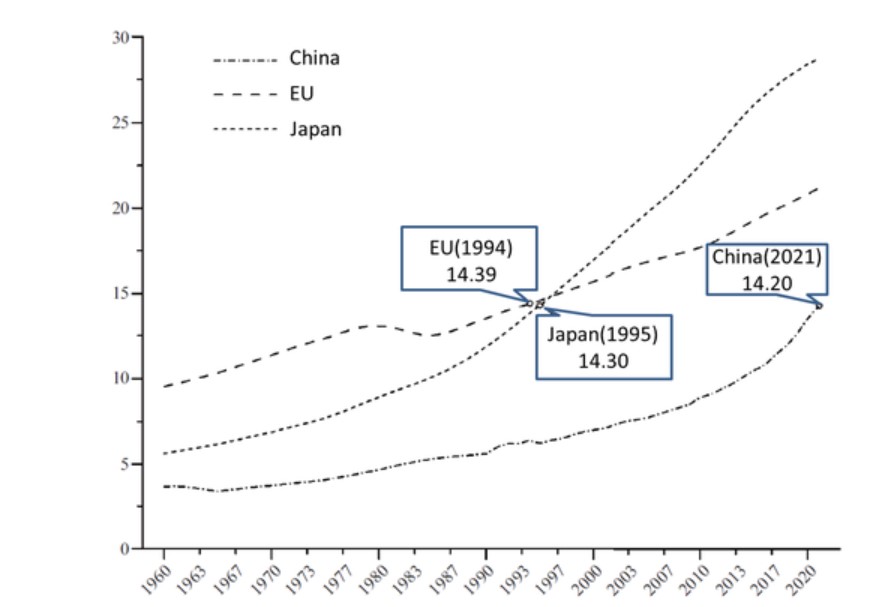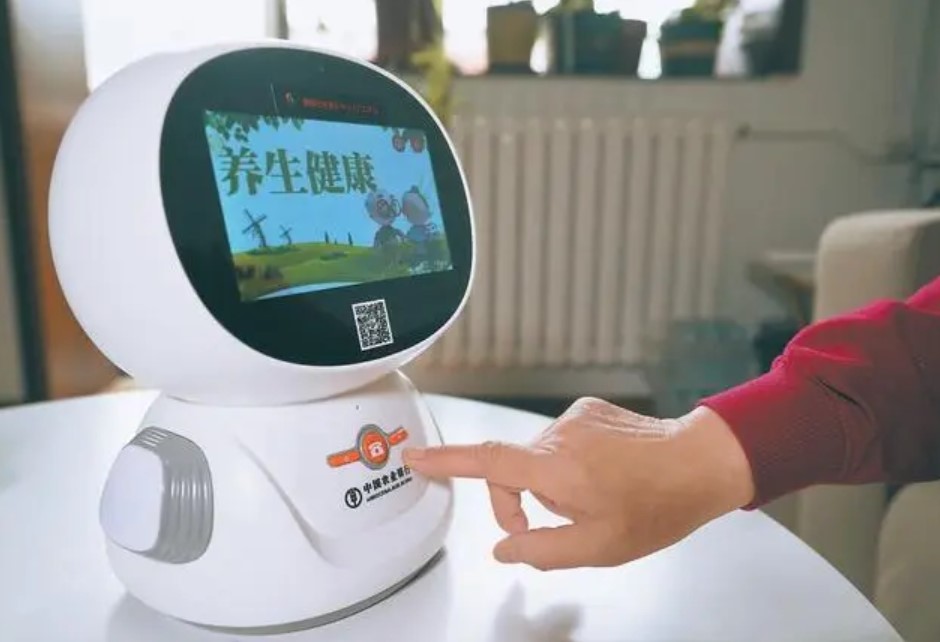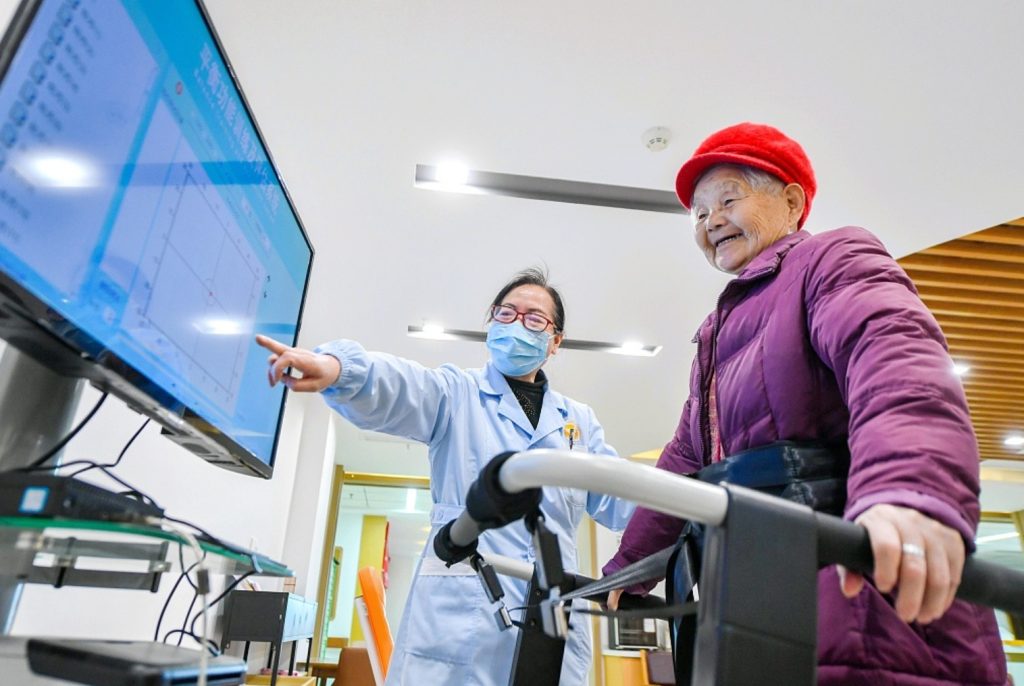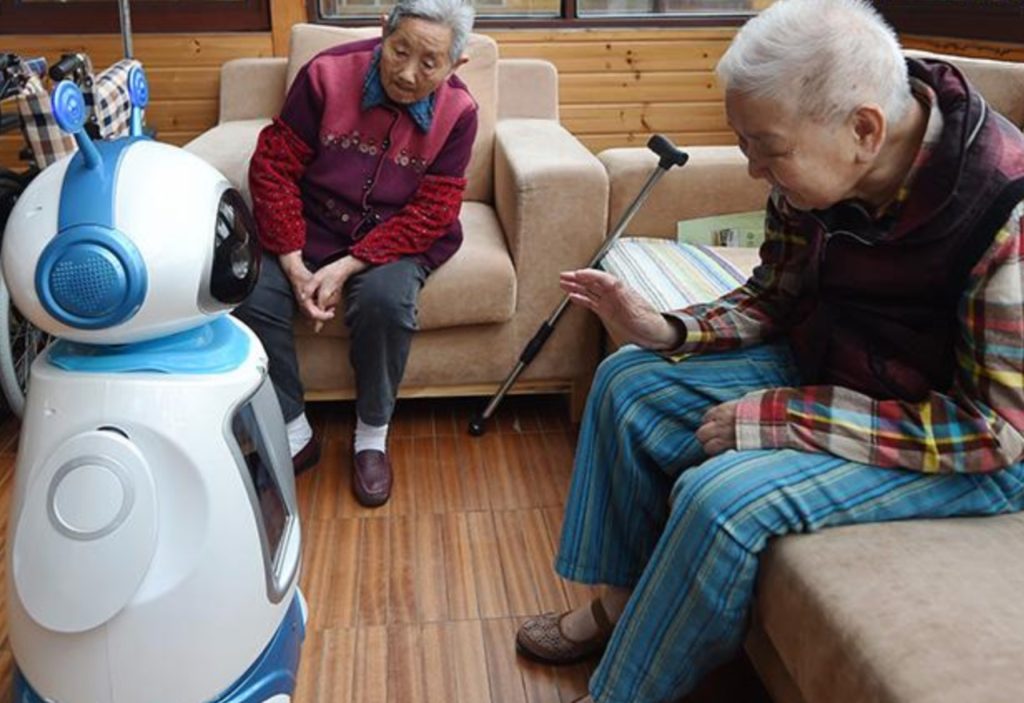Introduction
China’s demographic landscape is undergoing a significant transformation as the proportion of people aged over 65 surpasses 14% in 2021, signifying the country’s status as an aging nation. While China experienced this shift later than the European Union and Japan, it has swiftly recognized the need to convert the challenges posed by an aging society into opportunities for economic growth. The concept of the “silver economy” has gained traction, and China is embracing innovative approaches, particularly in the realm of smart elderly care. This blog delves into China’s struggle with aging problems, explores the emerging smart elderly care industry, and sheds light on the positive impact it can have on seniors and society as a whole.
The Delayed Emergence of an Aging China

China’s journey towards an aging population began over two decades later than the European Union and Japan. As depicted in the chart showcasing the percentage of population aged 65 and above in China, Japan, and the European Union from 1960 to 2021 (source: “On China’s Silver Economy” by Peng Xizhe and Chen Qian), the turning point arrived in 2021. This delay offers China an opportunity to learn from the experiences of other nations and devise tailored solutions to address the associated challenges.
Transforming Aging Challenges into Economic Opportunities
Following the examples set by the European Union and Japan, China seeks to leverage its aging society as a catalyst for economic growth. The silver economy, a concept that revolves around meeting the needs and demands of the elderly population, becomes a key focal point. Unlike the circumstances of the 1990s, today’s silver economy benefits from advanced technologies that facilitate a more efficient and effective approach. China is championing the promotion of “smart elderly care,” which necessitates the active engagement of multiple industries.
Tech Giants and Communities Driving Change
In pursuit of smart elderly care, Chinese tech giants and local communities have spearheaded transformative initiatives. For instance, e-commerce platforms such as Taobao and JD have introduced online elderly care services encompassing home care, health consultation, and virtual healthcare. These services have brought about a paradigm shift within the elderly care industry, surprising stakeholders with their innovative nature and accessibility.
A noteworthy development unfolded in March 2021 when Alipay launched a door-to-door service. Through Alipay, citizens can conveniently make appointments with nurses who provide professional medical care within the comfort of their homes. This eliminates the need for seniors to visit hospitals, ensuring they receive timely and appropriate medical attention.
Empowering Seniors within Residential Communities

The majority of Chinese seniors, over 90%, choose to reside in their homes. However, a significant portion lacks constant support from younger family members. To bridge this gap, residential communities have introduced portable tech facilities that grant seniors easy access to medical aid. For instance, in a residential compound in Shanxi Province, many seniors wear smart bands that automatically alert nursing homes in case of emergencies. This process is recorded on an online elderly care platform, ensuring transparency and accountability.
Additionally, community services can be conveniently ordered via phone, allowing seniors or their family members to request assistance with daily tasks such as shopping, house cleaning, food delivery, shower assistance, and accompanying elders outside. More recently, seniors in select residential communities in Beijing have been provided with robots that facilitate service orders. With a simple press of a button on the robot’s “belly,” users can request a range of community services, further showcasing the integration of technology and elderly care.
Government Initiatives Paving the Way

Recognizing the immense potential of the smart health and elderly care industry, the Chinese government has rolled out guidelines and policies to foster its development. In 2021, the Ministry of Industry and Information Technology, the Ministry of Civil Affairs, and the Health Commission jointly issued the “Action Plan for the Development of the Smart Health and Elderly Care Industry (2021-2025).” This comprehensive plan entails bolstering IT support, promoting research and development in new technologies for smart health and elderly care, and expanding the availability of smart health and elderly care products. The plan also emphasizes the development of smart health services such as telemedicine, personalized health management, Internet-based nursing services, and health consulting, ultimately enhancing people’s health management capabilities.
Furthermore, the “14th Five Year Plan for the Development of National Elderly Care and Elderly Care Service System” issued by China’s State Council in 2022 underscores the necessity of leveraging technology to support intelligent elderly care. This plan specifically advocates for the application of 5G, AI, and other technologies in the field of elderly care products. By promoting technological and intelligent upgrades within the elderly care sector, China aims to enhance the overall quality of care provided to seniors.
The Future of China’s Smart Senior Care Market

The collective efforts of various stakeholders, along with the government’s support, are expected to catalyze a substantial growth of the smart senior care market in China. Experts predict that the market will maintain double-digit growth and reach a staggering two trillion U.S. dollars by 2025. These projections highlight the potential of cutting-edge technologies penetrating the elderly care industry and offering extensive solutions within the sector.
Conclusion
China’s aging population presents unique challenges, but the country has demonstrated a proactive approach in addressing these concerns. By embracing smart elderly care, integrating advanced technologies, and fostering innovation, China is spearheading the transformation of the elderly care industry. These developments not only provide practical solutions to meet the needs of seniors but also contribute to the economic growth of the country. As the smart health and elderly care market continues to expand, it will positively impact the lives of seniors and benefit society as a whole.
